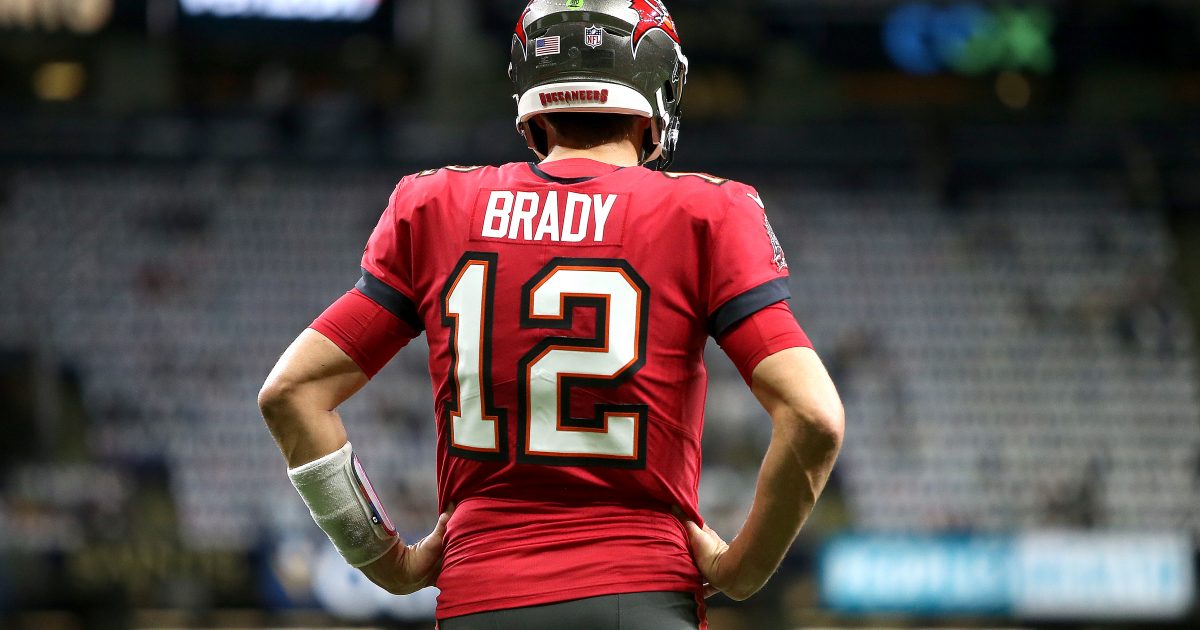A Hero On and Off the Field
- Noah Reeb, 10, was diagnosed with brain cancer after waking up in the middle of the night for weeks with intense migraines. His treatment involved surgery, chemotherapy, and radiation.
- Reeb’s football hero, Tom Brady, heard about his fan’s cancer battle and reached out to the boy with a message of encouragement. Reeb took comfort in watching Brady play football over the course of his treatment, and hearing from Brady himself was a dream come true.
- When Reeb beat his brain cancer and got scans back showing that his brain tumor had disappeared, his parents took him to a Buccaneers game to see Brady play in person. At the game, Reeb got Brady’s attention from the crowd and met him face-to-face.
When Reeb started waking up in the middle of the night with severe migraines, his mother instinctually knew something was wrong. These were more than casual headaches that would pass with time.
Read MoreReeb's first interaction with the football superstar came when Brady sent him an encouraging video wishing him well on his path to recovery. The 10-year-old has limitless admiration for his favorite quarterback. "Tom Brady, like he’s my herohe’s good on and off the field," Reeb told Daily Mail. "He seems like he’s a really good dad and he seems like a really good guy…He’s broken a ton of records and stuff."
View this post on Instagram
On October 24, Reeb had the chance to meet his hero in person. He showed up to the Buccaneers game with a simple sign, reading, "Tom Brady Helped Me Beat Brain Cancer." Reeb held his message high above his head, and during the game, he caught the quarterback's attention. "Yeah, it was everything," the boy said of meeting his hero. "To see the person you like kind of looked up to for like a long time walking towards you… it was amazing."
Brady's encouragement gave Reeb a sense of strength and support that boosted his spirits throughout his cancer battle. Now, he is in remission. The boy has also received the support of another generous celebrity. Reeb appeared on The Ellen DeGeneres Show, where he was gifted $1,000 for toys from Five Below, and $25,000 to put toward covering the costs of his treatment.
Childhood cancer survivor gets real about life after chemo and the new perspective his experience gave him.
Childhood Cancer & Family
Treatment advances in recent decades have lead to 84 percent of children with cancer now surviving five years or more, according to the American Cancer Society. This is up from 58 percent in the mid-1970s.
But according to the National Pediatric Cancer Foundation, more than 95 percent of childhood cancer survivors have significant health-related issues because of the current treatment options, and only 4 percent of the billions of dollars spent each year on cancer research and treatments are directed towards treating childhood cancer in the United States. Since 1980, fewer than 10 drugs have been developed for use in children with cancer while hundreds of drugs have been created exclusively for adults.
Dr. Elizabeth Raetz, director of pediatric hematology and oncology at NYU Langone's Perlmutter Cancer Center, reminded us in a previous interview that there is still reason for hope.
"There are also targeted treatments and different immunotherapies that have been studied in adults and have now moved into clinical trials for children and there has been a great deal of excitement in the community about that," Dr. Raetz told SurvivorNet.
Still, navigating a child's cancer diagnosis can be tricky. Jayne Wexler's son battled acute lymphoblastic leukemia and now deals with heart disease as a side effect of chemotherapy. In a previous interview with SurvivorNet, Wexler explained that in addition to regular parent worries having a child with cancer means living with a whole new world of anxieties.
"My husband and I will always have fear," she said. "I don't think we can ever let go of that. Just when he was OK, then he relapsed, and then he had the bone marrow transplant … so there's always some sort of worry."
Wexler admits she tries to live for each and every day, but it is understandable that this does not always come easy.
"And I do try you hear people say this we do have to live each day and be thankful for what we have," Wexler said. "And it's hard to remember that when you're caught up … it's very hard to just sort of enjoy the moment, because we just don't know what's going to happen in the future."
Contributing: SurvivorNet staff
Learn more about SurvivorNet's rigorous medical review process.

